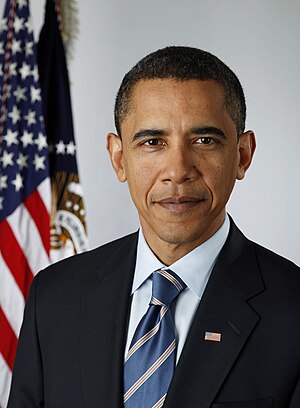 Image via Wikipedia
Image via WikipediaKIGALI, RWANDA- The short period the US has given countries to prove their minerals are not from Democratic Republic of Congo (DRC) will disrupt supply and hurt economies, a Rwandan geologist has said.
On July 20, 2010, the US President passed the Dodd-Frank Wall Street Reform and Consumer Protection Act.
A key provision in the law requires companies to disclose whether they use minerals from DRC or neighbouring countries within nine months.
The aim is to cut the source of funding that allowed rebel groups to terrorize communities, use sexual violence as a weapon of war and cause millions of deaths in Eastern DRC.
Tantalum is used to make electrical capacitors that go into phones, computers and gaming devices. Tungsten creates vibrations in cell phones, tin goes into circuit boards and gold is used to coat wiring.
This new law affects companies like IBM, Intel, Motorola, Apple and HP, but there is fear these companies may source their suppliers from other mineral producing countries to avoid being associated with conflict minerals and to costs involved in carrying out private audits.
These companies are large consumers of Tin, tungsten tantalum, 3T's and gold from the DRC and neighbouring countries.
Now they will have to submit annual detailed report on supply chains, backed by independent audits are to be reported to the US Congress.
The speculation is rife that the companies may chose to avoid the expenses of dealing with DRC's neighbours. "It is easy for the producers of electronics destined for the US to obtain their "conflict minerals" from other sources," a commentator in Kigali said.
Rwanda, Uganda, Burundi, Tanzania are bound to be affected by this law in the short run.
In an interview with Dr. Michael Biryabarema, Director General Rwanda Geology and Mines Authority believes many countries have no capacity and resources to implement the certification process within the required nine months as the US Congress wants.
He argues that enough time is required for companies to put the mineral tracing processes in place since the legislation implies that even minerals produced in countries neighbouring DRC have to be certified.
"This calls for the mineral sector in Rwanda to strengthen its capacity in documentation and be in position to satisfy the consumer community. The timing for implementation should be clearly studied to avoid hurting the industry that has no connection to the conflict source whatsoever," Biryabarema says in a statement.
Rwanda has started a certification process where mining companies in the country that comply with internationally accepted standards are to be graded and issued with a certificate of compliance by the end of this year in an effort to improve the performance of the sector


No comments:
Post a Comment